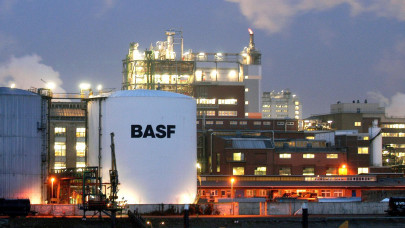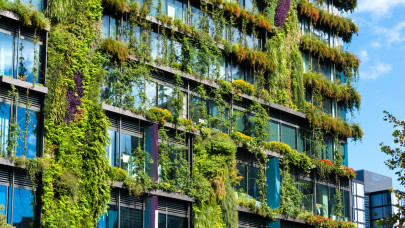It also aims to increase the rate of renovations of energy-inefficient buildings and improve information on energy performance.
According to the European Commision, buildings in the EU are responsible for 40% of our energy consumption and 36% of greenhouse gas emissions.
Draft measures to increase the rate of renovations and reduce energy consumption and greenhouse-gas emissions were adopted already.
According to the adopted text, all new buildings should be zero-emission from 2028, while new buildings occupied, operated or owned by public authorities from 2026 (the Commission proposed 2030 and 2027 respectively). All new buildings should be equipped with solar technologies by 2028, where technically suitable and economically feasible, while residential buildings undergoing major renovation have until 2032 to comply.
Residential buildings would have to achieve at least energy performance class E by 2030, and D by 2033. Non-residential and public buildings would have to achieve the same classes by 2027 and 2030 respectively (Commission proposed F and E).
All measures needed to achieve these targets would be established by each member state in national renovation plans. To take into account EU countries' diverse building stocks, the letter G should correspond to the 15% worst-performing buildings in the national stock.
Monuments would be excluded from the new rules, while EU countries may decide to also exclude buildings protected for their special architectural or historical merit, technical buildings, temporary use of buildings or churches and places of worship. Member states may also exempt public social housing, where renovations would lead to rent increases that cannot be compensated by saving on energy bills.
MEPs also want to allow member states to adjust the new targets in a limited share of buildings covered by the requirements depending on the economic and technical feasibility of the renovations and the availability of skilled workforce.
National renovation plans should include support schemes with realistic targets and measures to facilitate access to grants and funding. Member states need to put in place free-of-charge information points and cost-neutral renovation schemes. Financial measures should provide an important premium for deep renovations, especially of the worst-performing buildings, and targeted grants and subsidies should be made available to vulnerable households.
Ban on fossil fuels heating systems by 2035
EU countries should ensure that the use of fossil fuels in heating systems, for new buildings and buildings undergoing major renovation, deep renovation, or renovation of the heating system, is not authorised from the date of transposition of this Directive. They should be totally phased out by 2035, unless the European Commission allows their use until 2040, MEPs say.
“Soaring energy prices have put the focus on energy efficiency and saving measures, and improving the performance of Europe's buildings will continuously reduce energy bills and energy import dependency. We want the EPBD to reduce energy poverty, bring down emissions, and provide better indoor environments for people's health. This is also a growth strategy for Europe that will deliver hundreds of thousands of good quality, local jobs in the construction, renovation, and renewable industries, while improving the well-being of millions of people living in Europe”, said the rapporteur on the Energy Performance of Buildings Directive Ciarán Cuffe (Greens/EFA, IE).
The draft legislation will be put to a vote by the full House during the 13-16 March plenary session and become Parliament's negotiating position. MEPs will then enter into negotiations with Council to agree on the final shape of the bill.
On 15 December 2021, the European Commission adopted a legislative proposal to revise the Energy Performance of Buildings Directive (EPBD), as part of the so-called „Fit for 55” package. A new European Climate Low (July 2021) enshrined both the 2030 and the 2050 targets into binding European law.













